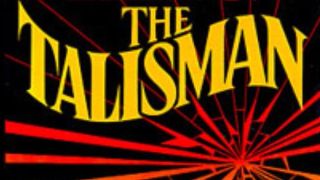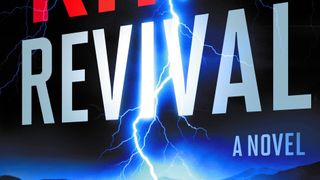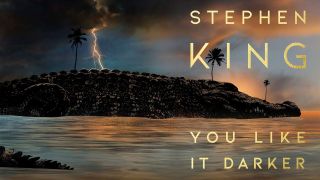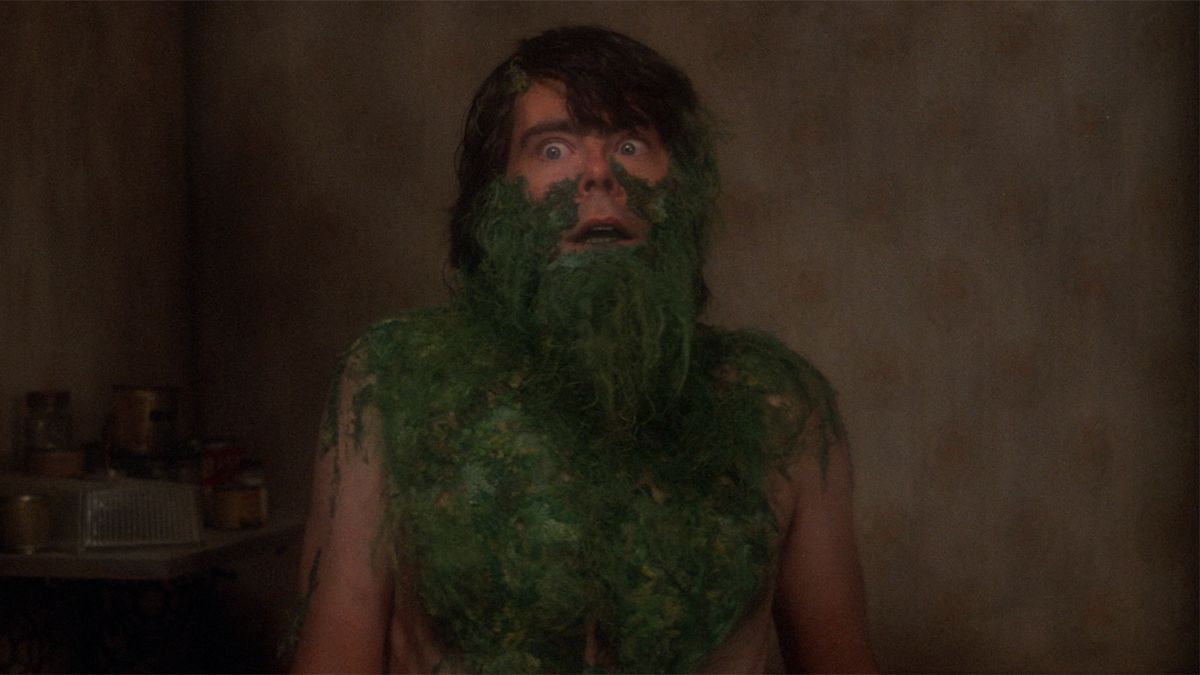The last few days have been very exciting for Stephen King fans. After all, it’s not every week that we get to learn the title of his latest book and early plot details. That’s exactly what we got this past Tuesday when the author revealed that his next novel is called Always Holly and will follow Holly Gibney as she gets involved with a “woman who’s a flashpoint in American politics” and gets embroiled in a situation with a dangerous stalker. That’s obviously huge news for Constant Readers looking to further expand their ultimate Stephen King collection… but it’s not the only development to come out of the King world since the last edition of The King Beat.
In addition to the news about Always Holly, King has also provided an update about his potential next book in the Talisman/Black House series, delivered some dark insight into the end of Revival, and listed what he thinks are the 10 best books of the 21st century so far. Without any further delay, let’s dig in!

Stephen King Is Still Developing His Sequel To The Talisman And Black House, But He Isn’t Making Any Promises
Last summer, Constant Readers were delivered some terrific and unexpected news: Stephen King revealed that he was in the process of developing a new story about protagonist Jack Sawyer – the lead character in the 1984 novel The Talisman and its 2001 sequel, Black House. The co-author of both books, Peter Straub, passed away in 2022, but King said that he had been in communication about a fresh idea for a follow-up, and it would be a long tale if he could “muster up the energy to write it.”
This week, we learned that the possible third book in the Jack Sawyer trilogy is still a work in progress… but the work is pretty slow going and it doesn’t seem as though King is making any specific promises at this point about everything coming together.
In the same interview with the Talking Scared podcast this week that revealed the title of Always Holly, Stephen King provided an update about the potential sequel he is working on for The Talisman and Black House. Part of the process is King going back through those previous books and taking specific notes, and he is apparently halfway through that bit of labor. Said the author,
I finished reading the Talisman and I made all the notes that I had to make about it. And then I’ve gotta read Black House; that comes next, because there’s kind of a cliffhanger, as I recall, at the end of Black House. So I’ll read that and maybe something will happen, maybe it won’t. I never know. It’s a very wasteful way to work. The way that I work is wasteful.
One wouldn’t specifically call Stephen King’s methodology efficient. He isn’t an author who makes a big plan and draws everything out before diving into a story; he simply starts writing with an idea and lets himself get swept away by inspiration. Unfortunately in this case, he’s doing a lot of prep work that may or may not end with the production of a new book.
For those who haven’t read the existing novels, The Talisman introduces Jack Sawyer as a 12-year-old boy who goes on a fantastical adventure in order to save his mother, who is dying from cancer. He discovers that he has the ability to mentally “flip” to a parallel universe called The Territories, and he must seek out a magical totem that will cure his mom. Black House catches up with Jack as an adult and former police detective who finds himself on the hunt for a serial killer who is known to the public as The Fisherman.
Stephen King said that he does feel a bit of responsibility to continue given that Black House ends with readers not knowing the specific fate of Jack Sawyer, and he added that Peter Straub provided him with a neat idea that could propel the project forward:
It would be good because it did leave with this thing where Jack is wounded in such a way that he has to spend time in the other world in order to get better. So yeah. It’s there. And Peter [Straub] sent me a letter, and I found out some notes about it in my back files. It’s ridiculous to call them files. They’re boxes of papers that are all littered up and everything. It’s crazy. Horrible. I should be shot. (Laugh). He wanted to do a thing about a serial killer that was based on Charles Starkweather in the ’50s.
Always Holly will be Stephen King’s next book (he’s been writing it since February 2023), but perhaps the third Jack Sawyer novel will be his planned tome for 2026? Constant Readers everywhere can keep fingers crossed.

Stephen King Offers A Dark Follow-Up Perspective On The Ending Of One Of His Scariest Novels, And It Is Spectacularly Bleak
SPOILER WARNING: The following section of this column contains massive spoilers for Stephen King’s novel Revival. If you have not read it (and you should, as it’s one of King’s best books), proceed at your own risk!
There are some exceptionally dark endings in the Stephen King canon, from the spiral into insanity that unfurls in Pet Sematary to the horrible death in the finale of Cujo, but there is a case to be made that King has never written anything more soul-crushing than his 2013 novel Revival. This is a book that reveals the truth about the afterlife, and the truth is that we all go to a Lovecraftian hell called The Null where we are tortured by monstrous ant-like beings that are controlled by a leviathan god called Mother. It is deeply fucked up (and that’s actually just one aspect of the tome’s devastating conclusion).
But guess what? The imagined reality that King has created is even darker than you may have thought.
The most recent episode of The Losers’ Club: A Stephen King Podcast is a three-plus-hour breakdown of Revival, and there is a point in the middle of the conversation where the hosts debate a question: would you rather there be nothingness after you die or continue existence in The Null? This led to a discussion of post-death consciousness and the potential for revolt against the ants and Mother… but Stephen King himself set the record straight this past week on his personal Twitter account, posting,
Memo to the Losers Club: Ants gnaw off the wounded legs of compatriots after battle. So if the afterlife, Mother’s ant-gods probably do the same to their human captives. There is no escape.
So there goes any hope out the window. If there is any truth to Stephen King’s vision, there are no alternative afterlife options beyond The Null, and once you die, you are forever trapped in a chaotic nightmare world that is eternal and inescapable. When recommending Revival, I like to tell people that it’s a book that actually gave me an extra reason to fear death, and when you fully wrap your mind around its ending, I think that’s reasonable.
After more than a decade of being in print, Revival has proven to be very difficult for filmmakers to try and adapt (though not for lack of trying), and one can imagine that in addition to other challenges, studios may balk at its shattering ending. Regardless of whether or not it ever makes it to the big or small screen, however, it can be said that it stands among Stephen King’s greatest novels.

Stephen King Names The 10 Best Books Of The 21st Century So Far, And One Of His Own Books Is On The List
As those of you who regularly read this column know, Stephen King has never been shy about sharing his opinion. It’s rare that a few days go by without the author sharing a review or personal take about a piece of work in an interview or on social media, as he is an avid reader and dedicated film/television viewer. This week, we got something a little bit extra special, as the author shared his list of what he considers to be the 10 best books of the 21st century so far with The New York Times.
The newspaper has polled a number of writers about what they think are the best examples of post-2001 literature, and King provided his personal list – which notably includes one of his own works. You can check out his picks below:
- Under The Dome by Stephen King
- Atonement by Ian McEwan
- Christine Falls by Benjamin Black
- The Goldfinch by Donna Tartt
- Gone Girl by Gillian Flynn
- No Country For Old Men by Cormac McCarthy
- Oryx And Crake by Margaret Atwood
- The Paying Guests by Sarah Waters
- The Plot Against America by Philip Roth
- The Sympathizer by Viet Thang Nguyen
It’s a great list full of standout titles (I haven’t read all of them, but most), but I will admit to being personally surprised by the last pick – and not just because Stephen King chose one of his own books for his Top 10. King has said multiple times over the years that 2006’s Lisey’s Story is what he considers to be his favorite among the novels that he has written, and yet he chose Under The Dome from his own canon when considering the best literature of the 21st century. Clearly he recognizes a distinction between “favorite” and “best,” and it would be fascinating to learn what that distinction is.
If you haven’t read any of the titles that are noted here, make note of them here, and perhaps pick up a copy of one of them next time you find yourself at your local bookstore.

Recommendation Of The Week: “The Turbulence Expert”
Because Independence Day landed on Thursday last week, I took a break from my recent string of You Like It Darker recommendations to pitch a perfectly appropriate short story for the holiday – but now I’ll go back to highlighting the phenomenal roster of tales in Stephen King’s latest omnibus. This time around, I’m suggesting that you crack open the book and check out “The Turbulence Expert,” which concerns subject matter that King himself finds perfectly terrifying: Clear-air turbulence.
First published in the 2018 horror anthology Fright Or Flight before being included in You Like It Darker, “The Turbulence Expert” ponders if the only reason planes are able to survive horrific rough spots in the air is because there are special people onboard who are able to psychically protect the craft. Protagonist Craig Dixon is a man who hates flying, but he is provided a comfortable living providing the world an exceptionally special service, and the story follows him as he hops on what might be a doomed flight traveling from Boston to Sarasota.
That brings us to the end of this week’s edition of The King Beat, but I’ll be back! You can find this column every Thursday here on CinemaBlend, and while you wait for the next roundup of news, you can check out my series Adapting Stephen King, digging into the long history of King’s work on screen and learn about all of the adaptations in the works with our Upcoming Stephen King Movies and TV guide.
